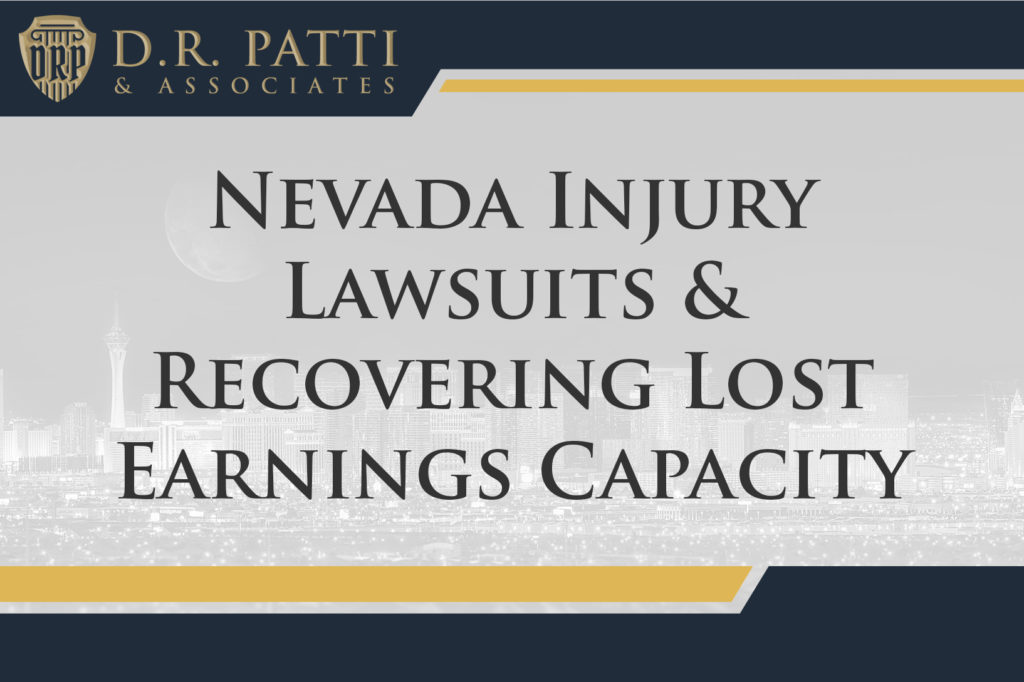
If you are injured after an accident, it’s not uncommon to miss work. Sometimes the amount of time away from work is limited. But in other cases, severe injuries can completely change your career course. If you have any injury that keeps you from working in Nevada, lost earning capacity is considered in your damages.
Lost earning capacity is any future income that a victim is largely certain to lose after an out-of-court settlement or a lawsuit. When victims cannot return to work, these damages are often awarded lost wages in Nevada. Lost wages are defined as any income that has already been lost at the date of the settlement or lawsuit.
The Difference Between Lost Earning Capacity and Lost Wages
In accidents or other types of personal injury cases, Nevada law lets you recover for each of the following:
- Loss of income that is reasonably expected going forward as a result of the injuries you have experienced.
- Any wages and benefits from work that weren’t received between the time when the injury occurred and the lawsuit or settlement.
Lost wages are often proven with a large amount of certainty. This is because they are the amounts you have already lost due to missing work following an accident. However, lost earning capacity can be more challenging to prove. The amount is based on what you would have earned in the future if you were not injured.
The amounts are more speculative and harder to prove, but it can be done. The attorneys at D.R. Patti & Associates can help you prove the certainty needed by the court to recover lost earning capacity damages.
How Lost Earning Capacity is Calculated in Nevada Personal Injury Cases
Many factors can go into calculating your lost earnings in the future, including the following:
- How long the injuries are likely to last?
- Whether your income was performance-based or fixed?
- Whether you will likely be able to return to normal employment?
- What your long-term employment goals are?
- How old you are and what your life expectancy is?
- Any raises you might have received?
- Your state of health before the injury or accident?
- Potential for promotions in your work field?
- The number of working years before your probable retirement?
- Anything else that relates to your earning potential?
Length of Injury Time Needed to Recover Lost Earning Capacity
There is no specific amount of time that you must be injured to claim lost earning capacity in the state. However, Nevada typically only grants lost earning capacity if your injuries make it impossible for you to work for an extended period. This period typically extends beyond the last date when you can file a lawsuit.
The statute of limitations starts to count down as soon as you realize that you have an injury. In most cases with Nevada personal injury cases, this is a two-year period. However, it can be longer or shorter depending on the type of case. Failing to file a suit within the statute of limitations will cause you to lose your right to sue for the injuries.
With serious injuries, you may find that you cannot work while the statute of limitations is running. Other situations may lead you to miss out on promotions or other advancements within a company. Lost earning capacity in Nevada lets you recover damages for these opportunities and income.
Acquiring Damages in Nevada for Lost Earning Capacity
If you have been severely injured in the state of Nevada, you could be looking at a huge level of compensation from an insurance company. However, they work to delay your case and keep their losses low. Having an expert personal accident attorney on your side will help you get the damages you deserve for your injury.
